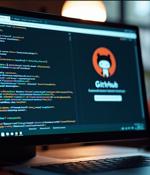Security News

Two high-severity security flaws have been disclosed in the open-source ruby-saml library that could allow malicious actors to bypass Security Assertion Markup Language (SAML) authentication...

The threat actor known as Blind Eagle has been linked to a series of ongoing campaigns targeting Colombian institutions and government entities since November 2024. "The monitored campaigns...

Also, phone cleaner apps are a data-sucking scam, Singapore considering the literal rod for scammers, and more Infosec in Brief Microsoft has spotted a malvertising campaign that downloaded...

Kaspersky researchers have unearthed an extensive and long-running malware delivery campaign that exploited users’ propensity for downloading code from GitHub and using it without first verifying...

Plus: DOGE staff quit; LastPass PC, Mac gasp; and CISA warns Oracle and Adobe flaws under attack Infosec bytes Kaspersky says it has found more than 200 GitHub repos hosting fairly...

A malware campaign dubbed GitVenom uses hundreds of GitHub repositories to trick users into downloading info-stealers, remote access trojans (RATs), and clipboard hijackers to steal crypto and...

Cybersecurity researchers are calling attention to an ongoing campaign that's targeting gamers and cryptocurrency investors under the guise of open-source projects hosted on GitHub. The campaign,...

GitHub is mitigating an ongoing incident causing problems with multiple services, including performing pull requests, creating or viewing issues, and even viewing repositories and commits. [...]

Multiple security vulnerabilities have been disclosed in GitHub Desktop as well as other Git-related projects that, if successfully exploited, could permit an attacker to gain unauthorized access...

In this Help Net Security, Alexis Wales, CISO at GitHub, discusses how GitHub embeds security into every aspect of its platform to protect millions of developers and repositories, ensuring it...